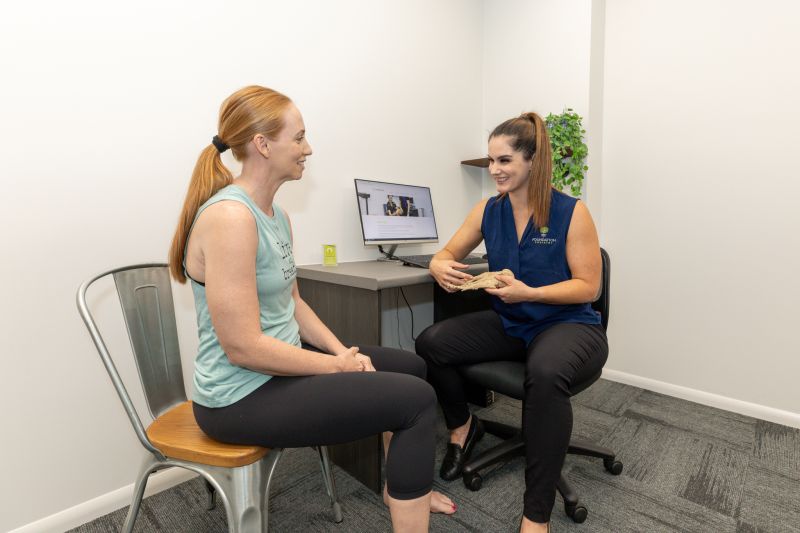More pages in this section
Heel Pain in Children (Calcaneal Apophysitis or Severs)
Calcaneal apophysitis is the most common cause of heel pain in the growing child and is due to overuse and repetitive micro-trauma of the growth plate within the calcaneus (heel bone).
Another name for this children's heel pain condition is Severs disease, but as scary as the name may sound, it is not a disease, but an overuse condition. Calcaneal apophysitis is most common between the ages 8 to 14 and is more common in boys than girls.

Symptoms of Heel Pain in Children
- Pain or tenderness in the heel (especially squeezing edges of heel)
- Discomfort upon walking 1st thing in morning
- Limping, difficulty with walking
- More pain associated with running, jumping and playing sport – during and after
Causes of Severs Heel Pain
Although every child goes through the stage of having an open growth plate in their heel, not every child will develop pain. (A growth plate is a layer of cartilage usually found at the end of a bone, allowing the bone to grow in length. It is weaker and more vulnerable to injury than the rest of the bone. When the child has finished growing the growth plate disappears and the bone becomes one complete bone).
Children more likely to develop growth plate heel pain will have:
- Heavier and taller kids are more likely to develop heel pain
- Over-pronated feet/collapsing arches
- Play explosive sports such as soccer, hockey, football etc.
- Hard playing surfaces, lots of barefoot running
- Sudden increase in activity (start of sport season)
- High volume of exercise / play (lunch time play, rep, club sport...)
- Poor footwear (lack of cushioning and support)
Treatment for Children's Heel Pain
- Reduce physical activity but don’t completely stop (kids with calcaneal apophysitis were found to have a lower 'happiness' score on a MSK Quality of life questionnaire when compared to kids without heel pain so it's important to manage their pain without completely stopping activity)
- Ice pack after activity
- Avoid going barefoot, correct supporting and cushioned footwear
- Arch strapping to reduce traction force of achilles tendon on heel bone
If the symptoms are not improving then the underlying biomechanics need to be addressed. This may include:
- Cushioned heel raises to reduce the strain on the growth plate
- Foot Orthoses to control over-pronation
Calcaneal apophysitis is a self-limiting condition – meaning it will go away completely when the two parts of bony growth join together. There are no known long term complications associated with children's heel pain.
However, calcaneal apophysitis can be very painful and limit the child’s sporting ability while they are waiting for it to go away, in some instances making them feel like ‘throwing in the towel’. Symptoms commonly last for 1 – 6 months (varies greatly) and may recur on many occasions until the growth plate fuses.
Telling a child to rest from activity and that their pain will eventually go away on it's own is poor advice. Ask yourself, why would you let your child go through pain for weeks, months and in some instances years, when the pain can be easily managed or resolved? Between the ages of 7-14, it is most important for children to be participating in sport to develop motor co-ordination, balance, fitness and social skills.









